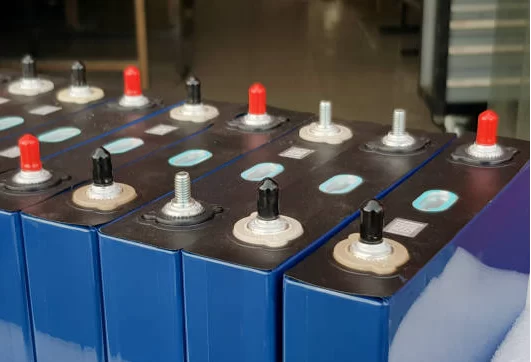The Future of Energy: Lithium Battery for Energy Storage
As the world increasingly shifts toward renewable energy, the importance of effective energy storage solutions has never been more critical. One of the leading technologies in this area is the lithium battery for energy storage. This article explores what lithium batteries are, their benefits, applications, and why they are becoming essential for our energy needs.
What is a Lithium Battery for Energy Storage?
A lithium battery for energy storage typically refers to lithium-ion batteries that store electrical energy. These batteries use lithium compounds as the primary component in their electrodes, allowing them to charge quickly and hold a significant amount of energy. This technology has made them the go-to choice for a wide range of applications, from powering smartphones to storing energy generated from solar panels.
Advantages of Lithium Batteries for Energy Storage
- High Energy Density
One of the most remarkable features of lithium batteries for energy storage is their high energy density. This means they can store more energy in a smaller space compared to other types of batteries. This characteristic is particularly beneficial for applications where space is limited, such as in electric vehicles or residential energy storage systems.
- Long Cycle Life
Lithium batteries are known for their longevity. They can withstand thousands of charge and discharge cycles without significant degradation in performance. This long cycle life translates to fewer replacements and reduced costs over time, making them a cost-effective option for energy storage solutions.
- Fast Charging
Another advantage of lithium batteries is their ability to charge quickly. This feature is crucial in applications where energy availability is time-sensitive. Whether it’s recharging an electric vehicle or storing energy from solar panels during peak sunlight hours, lithium batteries ensure that energy is captured and used efficiently.
- Low Maintenance
Unlike some other battery technologies, lithium batteries require minimal maintenance. They don’t suffer from the “memory effect,” which can reduce capacity in other battery types. This low maintenance requirement makes them an attractive option for both residential and commercial energy storage systems.
Applications of Lithium Batteries for Energy Storage
- Renewable Energy Integration
As the world moves toward cleaner energy sources, integrating renewable energy with reliable storage solutions is essential. Lithium batteries for energy storage are pivotal in this integration, allowing excess energy generated from solar panels and wind turbines to be stored and used when demand is high. This capability enhances the reliability of renewable energy systems and promotes energy independence for homes and businesses.
- Electric Vehicles (EVs)
The electric vehicle industry is rapidly expanding, and lithium batteries are at its core. Their high energy density and fast charging capabilities make them ideal for powering electric vehicles. As more consumers choose EVs, the demand for effective energy storage solutions continues to rise, making lithium batteries essential for this transition.
- Grid Stabilization
Utilities are increasingly turning to lithium batteries for energy storage to help stabilize the grid. These batteries can quickly respond to fluctuations in demand, ensuring a consistent energy supply. By storing excess energy during low-demand periods and discharging it during peak times, lithium batteries play a vital role in enhancing grid reliability.
- Home Energy Storage
More homeowners are investing in solar panels, and combining them with lithium batteries for energy storage creates a self-sufficient energy system. Homeowners can store the energy produced during the day and use it at night, reducing their reliance on the grid and lowering their electricity bills.
The Future of Lithium Batteries for Energy Storage
Innovations and Advancements
The technology behind lithium batteries for energy storage is continually evolving. Researchers are exploring ways to increase energy density, improve safety, and reduce costs. Innovations like solid-state batteries, which promise even higher energy densities and safety, are on the horizon and could revolutionize energy storage further.
Environmental Considerations
As with any technology, environmental impact is a significant concern. While lithium batteries are more sustainable than many alternatives, there are ongoing discussions about the sourcing of lithium and the recyclability of batteries. The industry is making strides in developing more sustainable practices, including recycling programs that recover valuable materials and reduce waste.
Regulatory Support
Governments around the world are recognizing the importance of energy storage in achieving sustainability goals. Policies and incentives aimed at promoting renewable energy and energy storage solutions will likely boost the adoption of lithium batteries. This regulatory support can accelerate the transition to greener technologies and contribute to a more sustainable energy future.
Conclusion
Lithium batteries for energy storage represent a significant advancement in energy technology. Their high energy density, long cycle life, fast charging capabilities, and low maintenance make them a preferred choice for a variety of applications. As we continue to embrace renewable energy sources, lithium batteries will play an increasingly important role in storing and utilizing that energy efficiently.
By understanding the benefits and applications of lithium batteries, consumers, businesses, and policymakers can make informed decisions that contribute to a more sustainable and energy-efficient world. Embracing this technology is not just about innovation; it’s about ensuring a greener planet for future generations.
In summary, the lithium battery for energy storage is not just a trend—it’s a vital component of our energy future. With their ability to store renewable energy, power electric vehicles, and stabilize the grid, these batteries promise to help us achieve a cleaner and more sustainable energy landscape.

